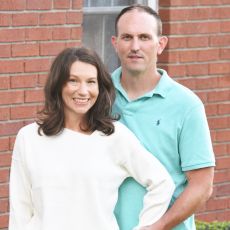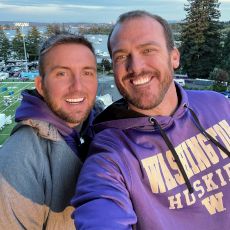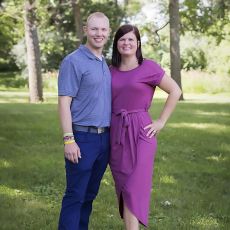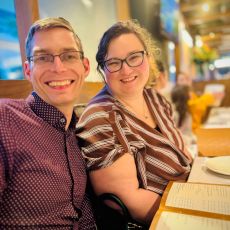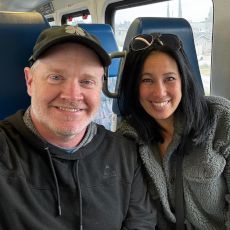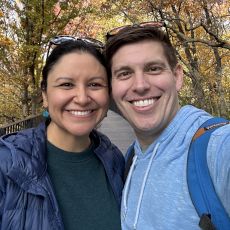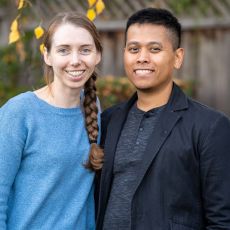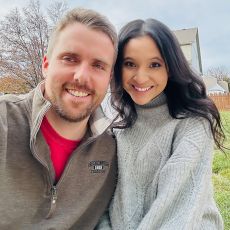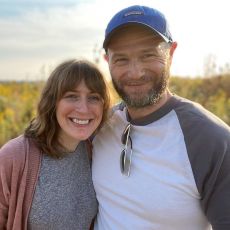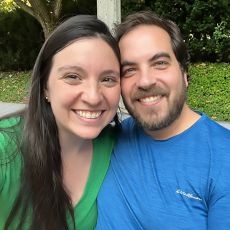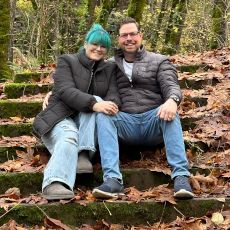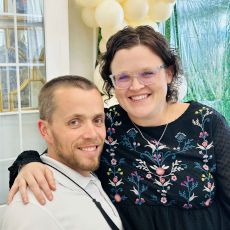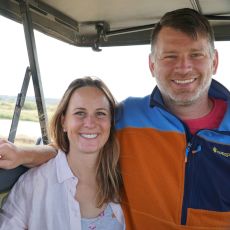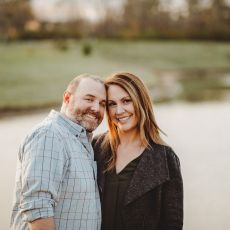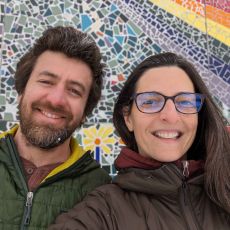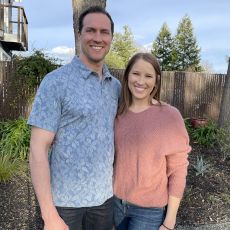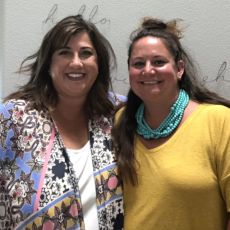Will My Child Know About Me After Adoption?
How Your Child Will Learn About Their Adoption
Adoption used to be kept a secret. It was common for children to grow up not knowing they were adopted, and only learn about their adoption and their biological family much later in life. But this is not the case anymore.
Today, children are told about their birth families and their adoption stories from essentially the moment they come home, and open adoption is more popular than ever. Adoption is always a part of their family’s story, so it’s always a normal part of their lives.
American Adoptions has helped thousands of birth parents place their children for adoption through our agency, most of them through open adoptions. If you have questions or concerns about how the adoptive family will talk to your child about adoption, give us a call at 1-800-ADOPTION or fill out our online form to get the answers you need.
Do Most Children Know They're Adopted?
Yes, most adopted children grow up knowing they are adopted. A 2012 study from the Evan B. Donaldson Adoption Institute titled “Openness in Adoption” found that 95 percent of adoptions today are open or semi-open, meaning children and their adoptive families maintain some form of contact with their birth families. As the statistics show, modern adoptions are more open than ever before. This has been shown to benefit everyone involved, but most of all, the adopted child.
Beyond that, adoptive families celebrate their adoption story with their child from an early age, which helps them embrace being adopted as a positive part of their identity. Many adopted children also hear about their biological family from a young age, which helps them feel a strong sense of connection with their birth family.
Because of our staff’s personal experience as birth parents, adoptive parents and adoptees, we understand just how important openness is to every side of the adoption triad. While it is always up to you to decide what kind of relationship you want with your baby and the adoptive family, American Adoptions requires every adoptive family to agree to open adoption.
Our adoption specialists also provide education and support to ensure that our adoptive families tell their child that they were adopted from a very early age, so they grow up understanding their adoption story.
Keep in mind, you are in complete control of the family you choose for your baby. You will get to know the family throughout your pregnancy, so you will have the confidence and comfort level needed that they will talk about adoption the way you want them to.
Can Adopted Children See Their Biological Parents?
Yes, they can. Birth parents have the ability to choose a level of openness in adoption they are most comfortable with. For some, this may be picture and letter updates. Other may choose to have phone or video calls, and still others may choose in person visits. If you are considering choosing adoption for your child, you can choose whichever option is best for you.
How Do Kids Feels When They Find Out They're Adopted?
Most families begin with books and storytime to help familiarize the child with the vocabulary of adoption. As the child gets older, they’ll share more details of the adoption story, making sure that they are age-appropriate to the child’s stage of development.
Helpful Information
Take it from Cole, who is growing up in an open adoption. When his mom asked him if he remembered finding out about his adoption, his answer was, “Nope!” Because he always knew.
“It’s just like you’re growing up knowing to spell your name,” he said. “I’m growing up knowing that I was adopted.”
You can watch more of Cole’s adoption conversation with his mom here.
Most importantly, adoptive parents try to make sure the child feels safe and loved and has a positive self-identity. The adoptive family you choose will tell your child everything you want him or her to know about you, your adoption decision, and the rest of your family. In addition to sharing this information, the adoptive parents will tell your child about the time they got to spend with you, how special you are and how much you love your son or daughter.
What Adoptive Families Will Tell Your Child About You
Even if you decide you do not want contact with the adoptive family after the adoption, your child will still hear about you from their adoptive parents, to whatever extent the adoptive parents know about you.
Closed Adoption
Adoptive parents are taught by their American Adoptions specialist how to talk to their child about birth parents who prefer a more closed adoption. Your child will know whatever details about you that you would like him or her to know, and they will always know that you love them and that you chose adoption because of that love.
Any concerns you may have about the family talking down or poorly of you should be erased. You have provided them with their dream of parenting, so they will always think highly of you and appreciate the gift you have given them.
Take it from American Adoptions cofounder, Susan Mars. She and her husband, Ted, adopted their son Scott during the era of closed adoption when adoptive families received no information about their children’s birth parents.
“Scott grew up knowing he was adopted and was allowed to talk and wonder about his biological family,” Susan said. “We wanted him to feel good about adoption and feel good about his birth parents. We always told him that his birth mother loved him enough to want better than she could do for him at that time in her life.”
When Scott was an adult, he met his birth mother and family, and Susan felt blessed to be able to finally meet the brave woman who made her a mom.
“I wanted to thank her for all the wonderful memories she allowed me to have, memories that I would never have been granted without her amazing choice — a choice of incredible sacrifice and love,” Susan said. "A choice that finally allowed me to become a mom.”
Read more of Susan’s story here.
Open Adoption
If you choose to have an open adoption, then you will be able to tell your child these things yourself in addition to their adoptive parents telling them this as part of their adoption story. You and your child can get to know one another directly with this option. Many birth parents have a relationship with their child and the adoptive family much like an extended family.
Birth mother Lindsey chose open adoption for her daughter, Charlotte, so that she would be able to reassure Charlotte of her love as she grew up.
“When you decide on adoption, it’s because you love that baby so much,” Lindsey said. “That’s why I wanted an open adoption. I wanted her to know, ‘I placed you for adoption because I love you. I wanted to give you that best chance at life.’"
“I knew that that family could send her to college, take her on vacations, have her join all the sports she wanted to,” Lindsey adds. “She would have the best chance at life, and I would be able to have updates on that — get pictures, letters, texts on what she was doing. And since I’ve had Charlotte and I see how well she’s doing and how happy that family is, it just reaffirms that I made the right decision.”
Watch more of Lindsey's story here.
Whether you choose an open or closed adoption, the adoptive parents’ gratitude and appreciation for you will stay the same — and your baby will be raised knowing that they have you to thank for placing them with the family they love so much.
What Do Adoptees Think about Adoption?
From the moment the parents you choose for your child bring their baby home, they’re encouraged to speak to him or her positively of their adoption story and of you. Despite the loss that is felt in adoption, so much of adoption is rooted in love. Adopted children are always made aware of how much they’ve always been loved and will always be loved by both their birth and adoptive families.
This is why the use of positive adoption language is so important. As young adoptees grow, their families won’t be the only people they hear speak about adoption, so it’s important to encourage everyone to use positive adoption terms.
Outdated phrases that paint a negative picture of adoption not only hurt your sense of self-worth, but they can also hurt that of an adopted child. Positively speaking about adoption assures children that their adoption is never something to be ashamed of and reminds them that adoption means love.
“Adoption has a stigma,” Casey, a proud birth mother, said. “You know, there’s that ignorance that you’re ‘giving up’ the children when you do not ‘give up’ a human being. In reality, you’re choosing something for them… I know a lot of people try to hide it because they’re ashamed of it, and you shouldn’t be. You made a big and hard decision for what was best for your child, and you should be proud of that.”
Ultimately, you’ll be able to talk directly to your child’s future parents about how they’ll talk to your child about adoption if you like. Together, you can discuss how your child’s adoption story will be a part of his or her life, and how you’d like that story to be told.
To learn more about how the adoptive parents you choose will talk to your child about adoption, or to get answers to any other questions you may have, fill out our online form, or call 1-800-ADOPTION now.
Disclaimer
Information available through these links is the sole property of the companies and organizations listed therein. American Adoptions provides this information as a courtesy and is in no way responsible for its content or accuracy.

